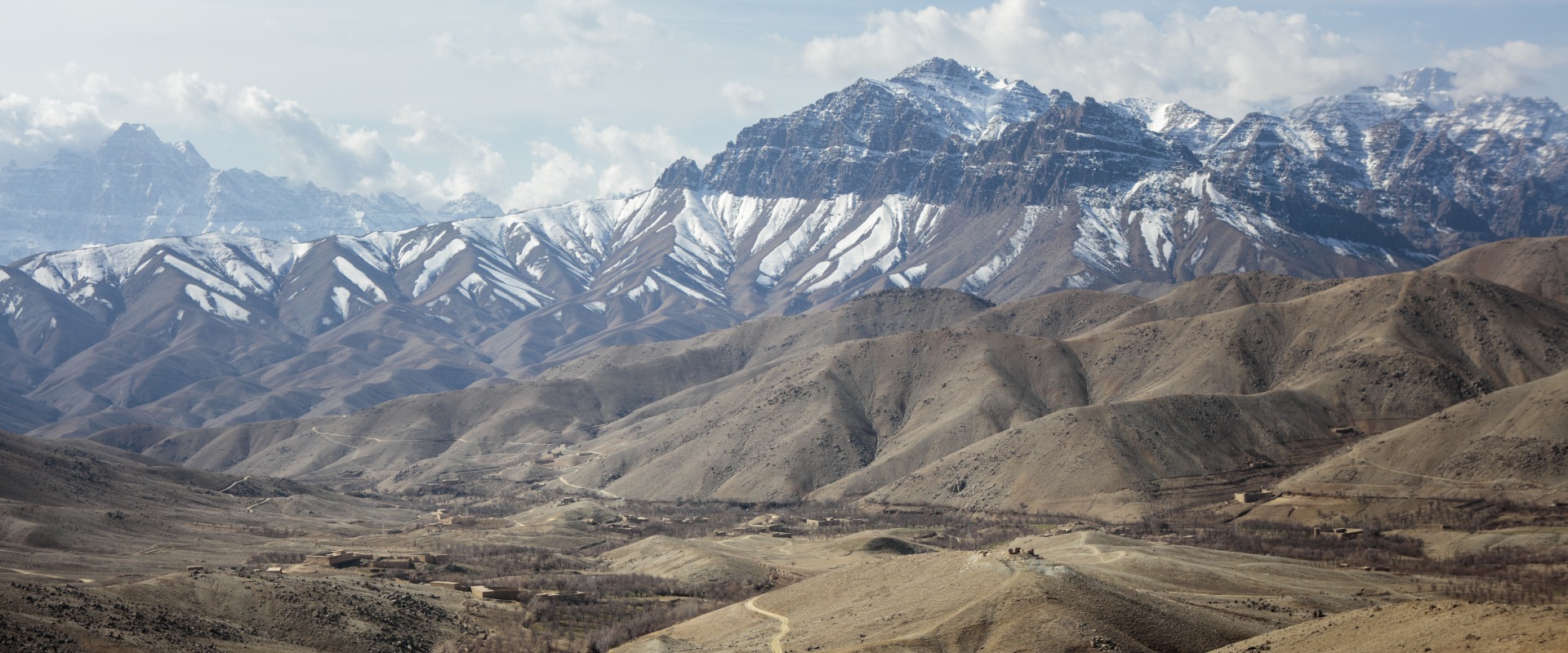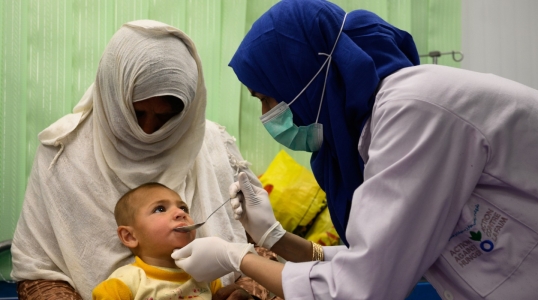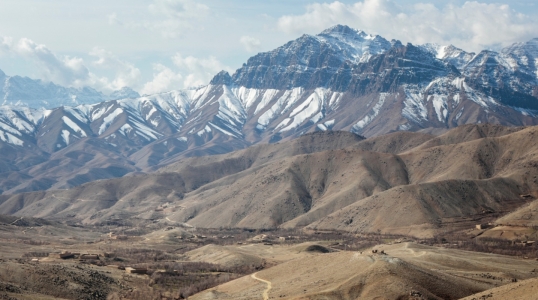
GIVE THIS RAMADAN

On Saturday, Afghanistan’s government banned all Afghan women from working in NGOs. The announcement followed several other harsh bans implemented by the Taliban to hinder women’s rights. The prohibition will severely limit essential aid across the country and hamper years of advancement.
The Taliban announced the ban shortly after receiving reports that women workers were not correctly wearing hijabs. It went into effect only days after another ban prevented women from attending university.
Action Against Hunger has worked in Afghanistan for nearly 30 years. Between January and July, our team helped nearly half a million people. In the midst of conflict and natural disasters, we’ve scaled up our work, especially targeting young children and mothers. Despite the importance of this aid, we have no choice but to suspend our programming in the face of the country-wide ban. Our female workers play crucial roles — alleviating food insecurity, promoting education, and encouraging reproductive health. We cannot continue our work without them.
We find the Taliban decision incomprehensible. The unnecessary punishment will only lead to unnecessary suffering. Without women workers, communities will be in desperate need of assistance. Thousands will be trapped in cycles of poverty and illness.
Our work in Afghanistan will be suspended until further notice. Only emergency medical programs — mainly for children with acute malnutrition — will remain.
At Action Against Hunger, we are committed to ensuring human rights for all people, regardless of race, sex, gender, ethnicity, and other identity factors. We will forever work to guarantee that all communities have access to freedom, justice, equality, and health.
We will continue to engage with the humanitarian community in Afghanistan to obtain from the Taliban authorities the immediate lifting of this measure. Every day, it endangers millions of lives.
Action Against Hunger has worked Afghanistan since 1995 to improve access to health and nutrition services for vulnerable communities. Between January and July 2022, Action Against Hunger supported nearly 500,000 people through its mobile clinics and therapeutic feeding units in five provinces of the country: Kabul, Daykundi, Helmand, Ghor and Badakhshan. ACF employs nearly 1,000 staff in the country, including nearly 400 women.



Join our community of supporters passionate about ending world hunger.